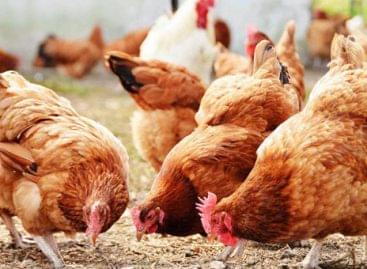The Eastern European and Baltic countries insist on retaining resources for the Common Agricultural Policy
The agriculture ministers of Eastern Europe and the Baltic states said in a joint statement in Warsaw on Monday that maintaining the level of resources available for the Common Agricultural Policy is essential for meeting the European Union’s climate protection commitments. The Hungarian Government will do its utmost to protect the agricultural subsidies due to Hungarian farmers. It is unacceptable for the price of climate protection to be paid to farmers or to Hungarian people through food price increases.

The agriculture ministers of Bulgaria, the Czech Republic, Estonia, Lithuania, Latvia, Romania, Hungary and Poland, in a joint statement on 24 February, called for the Common Agricultural Policy (CAP) budget to be maintained. The European Commission’s CAP budget proposal certainly needs to be raised, because it would not be enough without increasing the environmental and climate protection requirements for farmers. (AM Press Office)
Related news
The EP accepted the safeguard clauses concerning the Mercosur agreement
🎧 Hallgasd a cikket: Lejátszás Szünet Folytatás Leállítás Nyelv: Auto…
Read more >AM: Ministry of Agriculture supports the replacement of plantations damaged by frost
🎧 Hallgasd a cikket: Lejátszás Szünet Folytatás Leállítás Nyelv: Auto…
Read more >Related news
Lidl launches campaign with tennis star Steffi Graf
🎧 Hallgasd a cikket: Lejátszás Szünet Folytatás Leállítás Nyelv: Auto…
Read more >Amazon expanding same-day prescription delivery to 4,500 cities & towns
🎧 Hallgasd a cikket: Lejátszás Szünet Folytatás Leállítás Nyelv: Auto…
Read more >








